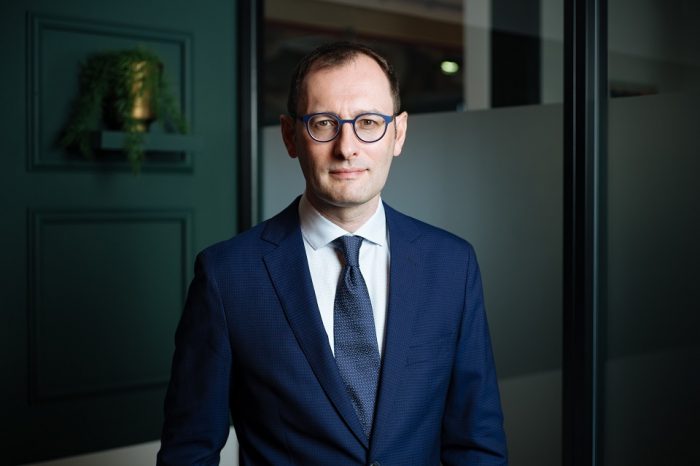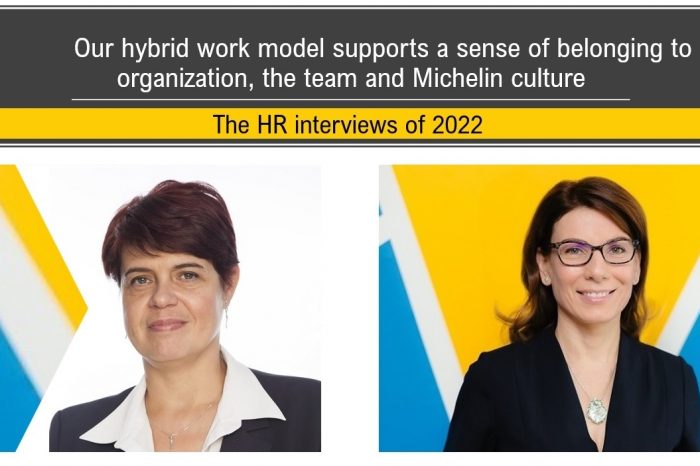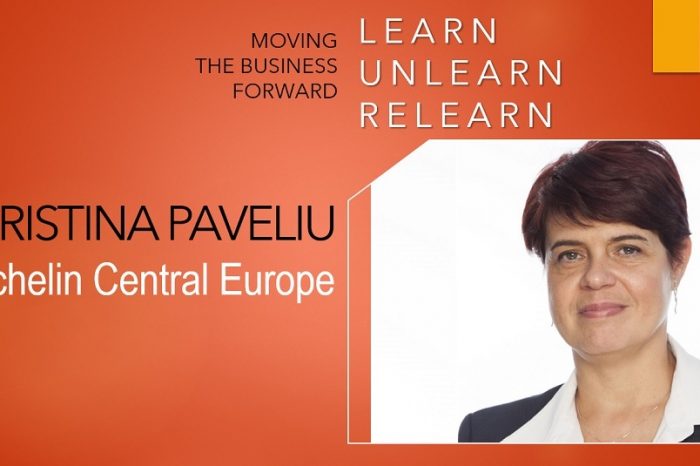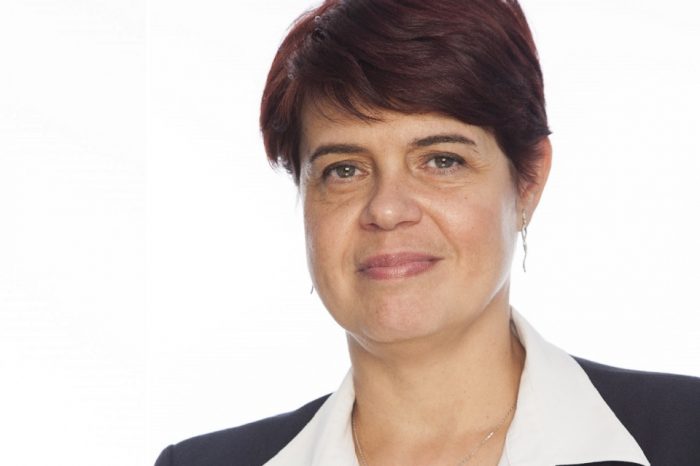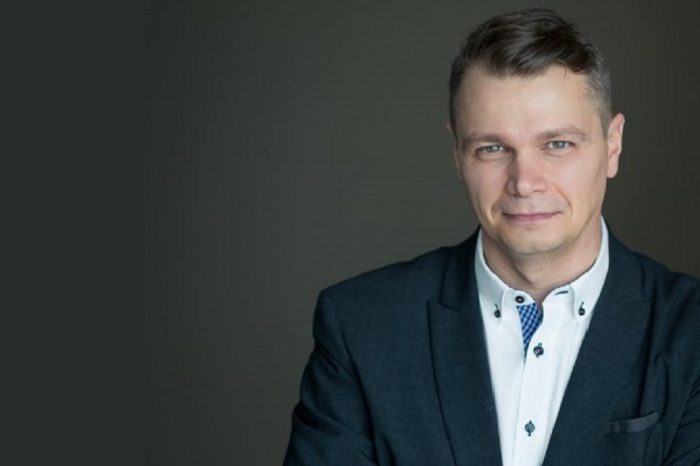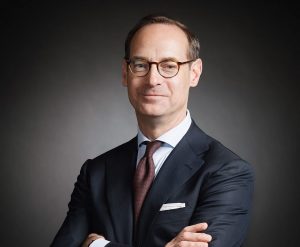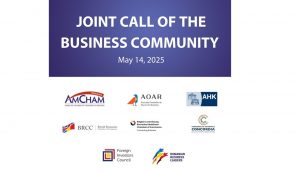Cristina Paveliu, HR Manager, Michelin Corporate & Business Services: We continue to establish and perfect norms of working together to foster engagement and inclusion for all employees
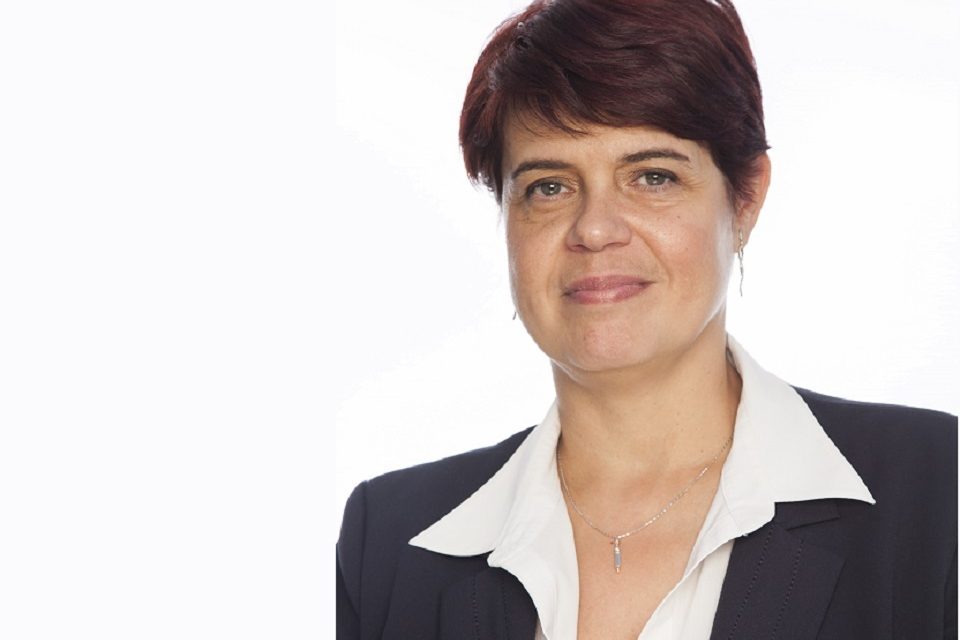
After ten months’ business and new reality of work experience, the companies and managers are looking for the best way to keep the businesses in line and looking towards evolution, despite al the challenges. Some business totally transformed, some others performed a fine tuning of their operations and processes, with an enhanced focus on people and HR strategies.
We recently talked to Cristina Paveliu, HR Manager, Michelin Corporate & Business Services about the main facts & perspectives of 2021, with a look towards 2021.
Opinion offered by Cristina Paveliu, HR Manager Michelin Corporate & Business Services, with contributions from: Madalina Dragoe, Recruiter; Dorin Enache, Competency Manager; Adina Florescu, Employer Branding & Onboarding Manager.
Transformation of organization’s mindset with the aim of people empowerment
It is well known that change is easy to propose but difficult to achieve. Usually, people change when the difficulties of not changing outweigh the difficulties of changing. In our case, the Covid-19 context jumpstarted a lot of good things – work from home, the digitalization of processes, and using new digital tools are only a few. It has also emphasized the empowerment of our employees.
In a situation like this, where managers are away from their teams, it’s easy to become a micro-manager focused on KPI’s and building strict “To Do” lists for team members. This is where programs like “Culture of Service”, implemented in Michelin, prove their worth.
Starting 2018, we focused on steering our organizational culture towards putting our clients and our partners at the forefront of everything we do. We held workshops focused on behaviors that would increase empowerment in teams and managers. Each manager attended the workshop with his team and shared experiences with other teams. Then the program continued with the “Culture of Service challenge” where teams would upload videos explaining ideas and projects that contribute to three main categories: Customer Centricity, Simplification, Empowerment. These videos are an example of a digital shared experience and teams get inspired by the actions of others.
2020 is the third year when we have the “Culture of Service Challenge” and the number of video submissions grows every year.
In conclusion, Empowerment is a key concept that we included in our organizational culture. This key concept helped us better deal with the challenges of the current context and will help us in the future as well.
The need for leadership
The leadership skills needed today haven’t changed. The work environment will always be changing, but our leadership model remains the same as before.
We already talked about Empowerment – empowering people and teams in alignment with the Michelin empowerment model. We have another very important dimension: Inspiring Others. Our managers need to be able to “walk the talk” and be role models for the people in their teams. Of course, “Achievement Orientation” is also critical while remaining customer focused.
In the end, I would mention a business skill that effective leaders need, and that is often overlooked: Self-Awareness. This is an essential behavioral competence that helps our managers understand and manage their own emotions, behaviors and drives, so that they truly understand the impact made on others, and they can instill trust and inspire others.
The new reality: WFH system
Currently, all our colleagues from the offices can work from home and most of them do take advantage of this option. But this is not entirely a novelty brought by the pandemic – Michelin had implemented a Home-Office policy a couple of years before, allowing our employees to manage their activities from the comfort of their homes for 2 or 3 days a week.
Our IT infrastructure was prepared for this switch, and teams were already accustomed to doing part of their work remotely. However, switching to 100% remote work did bring some questions and challenges: would teams continue to collaborate as effectively as before? How will we keep people motivated and engaged? Would something be “lost in translation” when communicating at a distance? What impact will not being close to their colleagues for such a long time have on our employees?
We’ve been working constantly to address these challenges and we are happy to say we’ve had the full support of our colleagues in this endeavor. Our managers have honed their listening skills, they’ve adapted to giving feedback online, they’ve become fluent in “remote management”, showing their teams increased trust, working with them to not only get the job done, but also maintain team morale and engagement with fun activities and personal connection. We’ve also registered a gain in terms of awareness about the importance of wellbeing – people working from home felt the need to compartmentalize, organize their time better, maybe even ask for advice or make some steps towards a healthier lifestyle, and we’ve supported this with recommendations and a help line available for all those who needed it.
Overcoming challenges
Moving to remote work meant that all our daily, face to face interactions also transitioned to a virtual environment. We’re trying to find the right balance between e-mail vs. chat vs. telephone calls vs. Microsoft Teams meetings and live events; luckily, we’ve done this exercise before the pandemic, too. There are some actions we had never done online before, like brainstorming and focus groups (because these require a stronger connection and a lot of trust), but we are learning to adapt these to the new media available, as well.
We’re taking advantage of our video call options, so that we get to see each other and feel closer to our colleagues. Like all people communicating remotely, our concerns are not to miss non-verbal cues or body language signals, to encourage constructive dialogue and make sure that everyone on the call gets the space to express themselves, that we keep everyone engaged. We’re also leveraging our regular communication tools (newsletters, intranet, internal social media) and we’ve adjusted our communication plans to keep information relevant to the current context.
Keeping the talent within
The pandemic might have disrupted our talent processes, but for sure it hasn’t stopped them. To address the current talent challenges, we adjusted a few of our elements related to talent management.
In order to attract talent in the organization, we ensured our continued presence and visibility in the market. We continued to communicate openly, participating in all kinds of career events: webinars, workshops or virtual job fairs. To ease communication with candidates, we took advantage of our career website redesign and we updated our job postings, too, highlighting attributes that Michelin has held for a long time and that have now become much more relevant for candidates: stability, respect, growth opportunities, care for employees.
We’ve also worked on improving our candidates’ experience by simplifying our recruitment processes: moving interviews online for the safety of all participants, reducing the number of steps in a recruitment process, assessing candidates using updated criteria and digital tools, shortening the time to offer.
To develop talent, we continued the work started before the pandemic. In addition to simplifying the external recruitment process, we’ve also adjusted our internal recruitment procedures, so that people can more easily apply, interview for and access a new role inside Michelin.
We continue to establish and perfect norms of working together (even though physically apart) so that we foster engagement and inclusion for all employees. The HR department offers support for managers, helping them to reach out, motivate and guide their employees in this online and remote mode. All HR members, from the HR Manager to the Proximity Development Partners (equivalents of the HR business Partner role) have allocated more time for direct interaction with our employees, be it through 1-on1 counseling meetings or through live conferences where they discuss important topics and transparently answer questions.
We continue to implement internal career development initiatives: with the Future Leaders program, we are training young colleagues for their first leadership roles; with #NextStep@Michelin, our internal career program that will be organized fully online this year, we are bringing career opportunities closer to our people.
Our people managers have increased the number of interactions with their team members, offering feedback, advice, learning about their career aspirations and sending the clear message that even in this context, growth does not stop, learning is not put on hold and we can (and we should) still make plans for
Empowering mindsets towards 2021
The culture of service, that has been constantly one of our top priorities since a few years, clearly started to pay off throughout this period, when we are all (or almost all) working remotely. Our managers can rely on the fact that everybody in the teams know what they need to do, and even go the extra-mile, if need may be, to solve a new or more particular situation, all for the benefit of our internal partners and customers. Our slogan is ‘we take care of others’, and this has never been more true than in these difficult and totally atypical times we’re living.
In this way, our managers can focus on what makes the difference, on what makes them great leaders: taking care of their teams with empathy, bringing inspiration and focus on what is important now.
A constant preoccupation was to identify new ways of keeping the teams together even when working from a distance, as we see that working remotely will still be the norm for a while.
Paraphrasing Hippocrates, ‘desperate times call for desperate measures’ – we’ve discovered that in these adverse conditions, our managers can be truly adaptable and creative in finding new ways of getting their teams together online. To make sure that everybody can take advantage of the brilliant ideas coming from our colleagues, we survey periodically on what is being done, and share the conclusions for the benefit of all.
2020 is getting closer to its end, and seeing that we succeeded to catch up on our business objectives, despite the current conditions, makes us proud to be part of this great organization that is Michelin, and defy the joke that was circulating a while ago in social media ‘- I see there is a gap in your CV – what were you doing in 2020? – I was in quarantine’.

